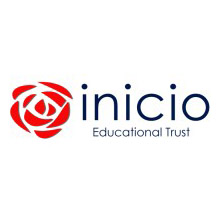Phonics
We have a systematic and synthetic approach to teaching phonics in EYFS and KS1 following the Read Write Inc programme. Regular training ensures that staff are equipped to teach with the expertise and skills required to promote excellent progress. Phonics is taught daily in Reception and Year 1 and for those children who require further intervention in Year 2 and beyond into KS2. We place great importance on speaking and listening in our Early Years and teach different aspects and levels of phonological awareness in our Pre-school provision.
Reading in Reception and Year 1
Guided Reading begins in Reception with those children who are ready to read in small groups. This continues in Year 1 and Year 2 with pupils continuing to develop their independent reading and comprehension skills. In EYFS and Year 1, we follow a continuous provision model and the class book often forms the basis of various independent activities in the role play corner and on the small world and creative tables. Whole class reading starts at the end of Year 2 using Destination Reader.
Destination Reader - Reading in Years 2-6
Destination Reader is a new approach to teaching reading in KS2. It was developed by a working party of Hackney teachers, who piloted the approach, to provide a higher quality approach to teaching reading in Key Stage 2. It involves daily sessions incorporating whole class modelling prior to the children applying these skills through partner work and independent reading. Children deepen their understanding of the texts they read through the systematic use of a series of strategies and language stems. Destination Reader develops oracy around reading and increases children’s breadth of reading. It also helps to build a culture of reading for pleasure and purpose.
Reading for Pleasure
Reading for pleasure is of utmost importance. We continually refresh our class libraries prioritising quality over quantity and providing our children with new, up to date and diverse reading books written by modern as well as traditional authors. Pupils are read to at the end of the day and at Parents’ evenings we give out reading lists for each year group. There is a book swap for KS2 pupils in the playground every Wednesday and a Reading Shed in each playground. Around the school we have displays which celebrate authors, children’s favourite books and recommendations from teaching staff. In addition, throughout the school year the importance of reading is enhanced through World Book Day, author and poet visits, parent reading workshops and a range of trips and visits which enrich and complement children’s learning.
Writing
We use the Literacy Tree planning from the The Literacy Curriculum which follows a whole text based approach. A two or three week planning sequence focuses on one book and continually develops skills leading up to an extended piece of writing. This curriculum immerses children in a literary world, creating strong levels of engagement to provide meaningful and authentic contexts for learning. They encounter a wide-range of significant authors and a variety of fiction, non-fiction and poetry. Assessment for Learning is embedded in literacy lessons and children are active in reviewing the successes in their work and identifying, with support from their teacher, target areas for development to ensure a continuous and individualised approach to improving their work.
Spelling, Grammar and Handwriting
Spellings and Grammar are taught in separate sessions but woven into English lessons where appropriate. We follow the No Nonsense Spelling scheme and for Grammar. All children in EYFS are taught to hold a pencil correctly and form all letters correctly. From year 3, children begin to learn to join up their writing.


